Mississippi Cannabis News
From THC Inflation to Aspergillus
Published
4 months agoon

There’s a perception among cannabis consumers that higher THC content in cannabis products is synonymous with value. Yasha Kahn, co-founder of MCR Labs, explained a recent episode of the Noid Knowledge podcast (1–3) that consumers are more likely to purchase products with high THC content because they’re generally thinking in terms of cents per milligram of THC. “If you have an option of 30% THC flower or 20% THC flower, you’re more likely to go for the 30%. And you’re more likely to pay more for that 30% and be happy with it,” he explained.
This perception breeds the incentive for industry to cultivate and sell high-THC products. That potency is verified though laboratory testing, but if a cultivator tests their product at two different labs and the results of one of the labs shows higher THC content, the cultivator is more likely to use those results because that will help them sell to the retailer who is looking for higher THC product. While, in isolation, differences in the results from competing labs do not necessarily indicate manipulation of test results, on a larger scale, there is an observable pattern in which labs feel pressure from clients to provide preferable results. If they don’t, someone else will. This has been dubbed “lab shopping,” and it’s something Khan has experienced first-hand.
“We had a lab in Pennsylvania, an excellent lab performing fast and accurate testing. Then some of our clients, cultivators, would come to us and say, you failed us, but this other lab offered not to fail us or didn’t fail us for anything,” explained Kahn. Instead of trying to figure out the discrepancies or remediate any issues such as mold, it was easier for those cultivators to just use the labs that passed them. Similarly, Kahn said that in Massachusetts, clients began coming to them demanding better potency results. “[They] would say that another lab is giving them much higher potency results. If we don’t do the same, if we can’t match the potency results that they get at the other lab, they’re going to leave us for that lab,” said Kahn. At the end of the day, while THC inflation is deceptive, there is also a larger public health concern in which some labs are passing products that are in excess of the threshold for contaminants such as mold.
This anecdotal experience is being verified with data. In the case of THC inflation, a 2023 study published in PlosOne (4) found that when testing the THC potency of 23 samples purchased from 10 different Colorado dispensaries, the tested potency was substantially lower than the label claims. The researchers found that on average, the observed THC potency was 23.1% lower than the lowest values reported on the label, and 35.6% lower than the highest values reported on the label. Seventy percent of the samples overall were greater than 15% lower in THC than label claims. While the researchers acknowledge that the exact source of the discrepancies is difficult to pin down, they explain that there are a number of factors at play, including economic incentives for high-THC products, as well as a lack of standardized testing protocols and limited regulatory oversight.
Jeff Rawson, president of the Institute of Cannabis Science, explained in a presentation (5) titled, “Market Audits Combat Cannabis Misinformation” for ASTM International’s D37 Virtual Symposium in 2023, that a big problem is the lack of analysis of compliance testing. An article of the same name co-authored by Rawson and Kahn was published in the Journal of Testing and Evaluation in July of 2024 (6). “Compliance testing happens at a different stage than consumption. It’s one step of quality control, but it’s not a quality assurance program,” Rawson explained. “Furthermore, the compliance testing that’s done is not evaluated systematically, or rarely. I don’t see a lot of people doing big data analysis on it right now, and products from the retail space aren’t measured at all. This is an engineering principle: You don’t control what you don’t measure. So, if you’re never measuring the consumer experience by checking products in the marketplace, then you’re not really controlling the quality of those products.”
Rawson offered Washington state as an example, in which seven of the 25 licensed labs have been suspended or cited for some kind of infraction, and all these infractions, he says, leave signature in the data they produce. “In fact, some of these infractions were discovered by actively monitoring compliance testing data and noticing that some of the labs had discrepant practices,” he explained. For example, among these Washington labs with discrepant practices, Rawson pointed out a pattern in which labs with above-average THC values saw a monthly increase in market share, indicating that more cultivators were going to this lab each month for preferable results. This illustrates how lab shopping happens and hurts honest labs. Some of the labs shown by Rawson to have increased their market share with high THC values were eventually shut down.
Knowing the importance of data and what it can reveal, Kahn and MCR Labs used Freedom of Information Act (FOIA) requests to acquire testing lab data from 20 of the 39 states that have cannabis regulations. This compilation of data includes information from 2.4 million flower samples, 144 labs, and has nearly 68 million data points. To give credit to policy makers and regulators, this is all thanks to the fact when they drafted regulations, they not only made testing mandatory but also required third party labs to submit all their test results to the state. That makes it public information. Now, to what extent these states monitor and use this data is another story.
Figure 1: Analysis of cannabinoids from biological fluids using HPLC.

Data has the ability to reveal an inconvenient truth. Regulators set limits on factors like total yeast and mold, for example, but these limits are not relevant when you’re dealing with result manipulation. “There are labs you can find that will pass you in almost every state, not every, but almost every state. And so…limits are just not a relevant topic up until the result manipulation issue [is addressed],” says Kahn. “Once we deal with that problem…then we should address action limits. And there needs to be public health officials that make that decision on what the limits should be. I can see in the data, in labs that test honestly, around 12 to 16% of flowers will fail at the 10,000 colony forming units action limit. Around 4 % will fail at the 100,000 colony forming units action limit.”
Figure 2: Analysis of cannabinoids from biological fluids using HPLC

Dealing with recalls not only costs money for stakeholders, but also tax revenue, which is another layer of incentive that can explain how labs and cultivators get away with result manipulation. Kahn explains that when filing FOIA request, some states were easier to work with than others. “The states that I had to sue are the ones with typically the worst data despite robust data. As in, clearly they know that there’s something to hide and they do not want this out in the open,” said Kahn. “I think it’s also that regulators are in a position where they will be held responsible if problems are found. Even if it’s not their fault. Maybe they’re not given the ability, the resources, or the jurisdiction to act on some of those things, and it’s better to like, you know, stay silent, let’s hope this blows over and then move on…In other states they really are doing as good a job as they can under the circumstances and are just not allowed to do anything. The market’s making money for the state, don’t touch it.”
Table 1: Aspegillus detection rates in Mississippi testing facilities.

As an example of the type of information these FOIA request provided, MCR Labs provided Cannabis Science and Technology with figures demonstrating the purported discrepancies between labs. These particular figures focus on Mississippi. Figures 1 and 2 show a distribution of total THC measured by two different testing facilities. In Figure 1, we see a pretty standard bell curve, while in Figure 2 we see a significant cliff in the number of products testing above 30% THC. Why such a steep cliff at 30% THC? Well, Mississippi law states that the potency of cannabis flower and trim cannot exceed 30% total THC. Looking at Aspergillus, Table 1 depicts the detection rate for Aspergillus from three different testing facilities. Out of 1,636 samples, facility 1 has a 0% detection rate. Facility 2 had a 0.23% detection rate out of 2,151 samples, while facility 3 had a 2.50% detection rate out of 320 samples tested. That means that statewide, Mississippi’s detection rate is 0.32% out 4,107 samples. Compared to other states, Mississippi has among the lowest detection rates for Aspergillus (Figure 3). There’s so much more data that can be dug into and interpreted to find patterns of manipulation, and finding these discrepancies is a great first step in solving the problem.
Figure 3: Aspergillus detection rate per state.

On the bright side, some states have already taken action to address manipulation. In the case of Mississippi, regulators did shut down one of the biggest offenders, and pulled product tested by that company off the shelf (7). California’s Department of Cannabis Control, for example, implemented Business and Professions Code section 26100(f)(2) that established standard cannabinoid test methods, “including standardized operating procedures, that shall be utilized by all licensed testing laboratories in California.” That means that January 1, 2024, all testing labs had to use this method to test for cannabinoids and there has been a noticeable dip at the retail level in the THC levels of cannabis products (8). While this does create a more level playing field for labs, this action does not address other factors such as total yeast and mold, which can affect the quality of products and pose a safety risk to consumers. There’s definitely more work that needs to be done to prevent result manipulation, and a data driven approach may be the best way to develop effective policies.
References
- Noid Knowledge. Ep 24, Part I: Data Transparency in Cannabis Testing with Yasha Khan. Cannabis Science and Technology. November 21, 2024. https://www.cannabissciencetech.com/view/ep-24-part-i-data-transparency-in-cannabis-testing-with-yasha-khan (accessed 2025-04-16).
- Noid Knowledge. Ep 24, Part II: Data Transparency in Cannabis Testing with Yasha Khan. Cannabis Science and Technology. December 12, 2024. https://www.cannabissciencetech.com/view/ep-24-part-ii-data-transparency-in-cannabis-testing-with-yasha-khan (accessed 2025-04-16).
- Noid Knowledge. Ep 24, Part III: Data Transparency in Cannabis Testing with Yasha Khan. Cannabis Science and Technology. December 26, 2024. https://www.cannabissciencetech.com/view/ep-24-part-iii-data-transparency-in-cannabis-testing-with-yasha-khan (accessed 2025-04-16).
- Schwabe, A.L.; Johnson, V.; Harrelson, J.; McGlaughlin, M.E. Uncomfortably high: Testing reveals inflated THC potency on retail Cannabis labels. PloS One. 2023, 18 (4), e0282396. DOI: 10.1371/journal.pone.0282396
- Jeff Rawson. Market Audits Combat Cannabis Misinformation, Jeff Rawson, ASTM D37 Virtual Symposium 2023. October 19, 2024. https://www.youtube.com/watch?v=3axXcu8KpCE. (accessed 2025-04-16).
- Turkington, V.; Kahn, Y.; Keller, L.; Willis, J.; Hamilton, A.; Utech, H.; Toth, J.; Rawson, J. Market Audits Combat Cannabis Misinformation. J. Test. Eval. 2024, 52 (6), 3203-3215. DOI: 10.1520/JTE20230665
- Saler, C. Mississippi medical cannabis companies to receive $6.3M from lawsuit against Rapid Analytics. June 4, 2024. https://www.supertalk.fm/mississippi-medical-cannabis-companies-to-receive-6-3m-from-lawsuit-against-rapid-analytics/ (accessed 2025-05-01).
- Divine, J. THC scores coming back down to reality in California in 2024. February 27, 2024https://www.leafly.com/news/industry/thc-testing-rules-bite-down-california (accessed 2025-05-01).

Author: mscannabiz.com
MScannaBIZ for all you Mississippi Cannabis News and Information.
You may like
-
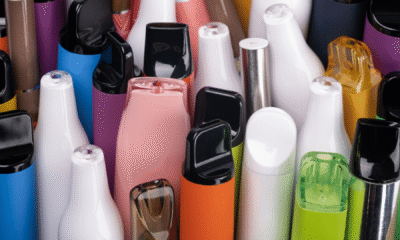

Dozen arrested after south Mississippi bust for illegal sales to underage customers
-
US marijuana laws explained as Donald Trump reveals plans for change
-
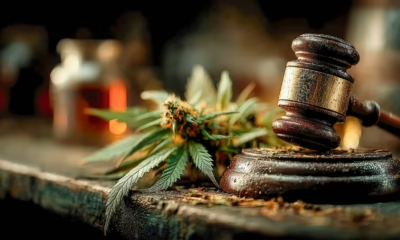

D.C. board rejects ANC 5A challenge to new medical cannabis retailer
-
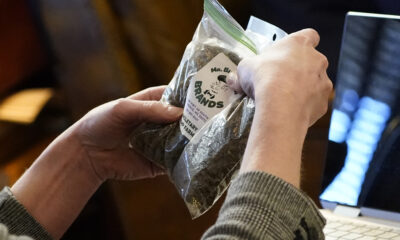

AG opinion on hemp triggers legal chaos for sellers, consumers
-
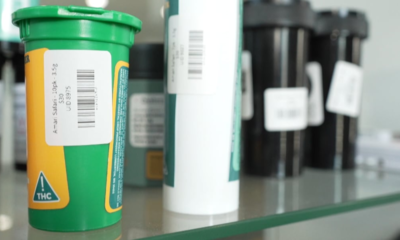

Mississippi Medical Marijuana Association pushing for policy changes
-
Mississippi Cannabis Program Adding 50 Patient IDs Per Day – Ganjapreneur
Mississippi Cannabis News
Dozen arrested after south Mississippi bust for illegal sales to underage customers
Published
7 hours agoon
September 14, 2025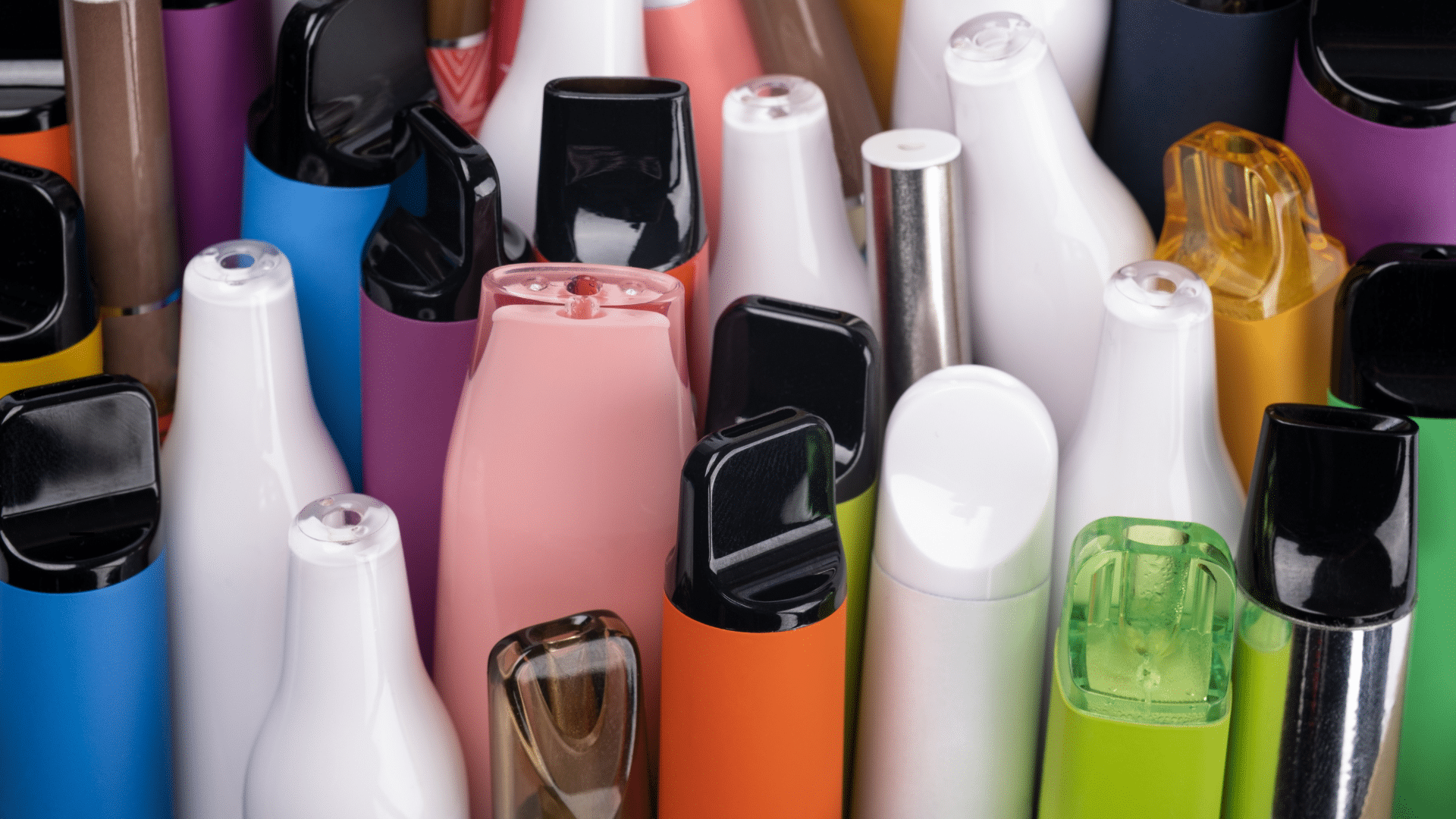
An investigation into south Mississippi businesses selling “alcohol, dangerous illegal vapes, THC edibles,” and other age-restricted or illegal items to underage customers has resulted in at least a dozen arrests with more possible, according to law enforcement.
An announcement by the Perry County Sheriff’s Office said deputies began an investigation in early 2024 after fielding complaints that some businesses in the county were purposely allowing individuals under the age of 21 to purchase age-restricted products.
Sheriff Jacob Garner said as the investigation unfolded, it quickly became clear that the issue was not restricted to Perry County. Law enforcement in nearby Forrest, Lamar, Marion, Greene, Jefferson Davis, and Jones counties had received similar complaints about businesses in their jurisdictions.
Local agencies teamed up with the U.S. Drug Enforcement Agency for over a year’s worth of identifying subjects, initiating traffic stops, and fielding more calls for service. It culminated on Sept. 11 after 20 search warrants were carried out, with 12 individuals being arrested for their involvement in the businesses selling alcohol, tobacco, and THC to minors.
RELATED: Parents urged to talk with students about tobacco risks
“Anyone who chooses to open a business in Perry County for the purpose of selling illegal narcotics, vapes, or THC products to children or adults will be arrested and prosecuted,” Garner said. “These items – disguised as safe or legal – are destroying lives and endangering the health and safety of our citizens. Business owners profiting off the harm of our children and adults in our county will be prosecuted to the fullest extent of the law.”
Garner added that many of the defendants, while operating in different counties, were working in tandem. The Mississippi Bureau of Narcotics, the Mississippi Bureau of Investigation, and the Mississippi Highway Patrol aided in the investigation that remains active.
The following list of arrests and charges has been announced by the involved law enforcement agencies:
- Khaled Alhamidi, 55, of Petal: Two counts of aggravated trafficking of a controlled substance, trafficking while in possession of a firearm, and conspiracy to sell a controlled substance.
- Akram Alhamidi, 25, of Petal: Two counts of aggravated trafficking of a controlled substance, trafficking while in possession of a firearm, and conspiracy to sell a controlled substance.
- Omar Obaid, 40, of Hattiesburg: Two counts of aggravated trafficking of a controlled substance.
- Gaizan Abubaker, 37, of Houma, La.: Two counts of aggravated trafficking of a controlled substance.
- Rami Selah, 32, of Petal: Two counts of aggravated trafficking of a controlled substance, trafficking of a controlled substance while in possession of an enhanced firearm.
- Bassel Saleh, 53, of Petal: Two counts of aggravated trafficking of a controlled substance.
- Mark Shaibi, 24, of Petal: Two counts of aggravated trafficking of a controlled substance, trafficking of a controlled substance while in possession of a firearm.
- Gabr Al-Gabri, 36, of Petal: Two counts of aggravated trafficking of a controlled substance, trafficking of a controlled substance while in possession of an enhanced firearm.
- Basel Rashad, 30, of Petal: Two counts of aggravated trafficking of a controlled substance, trafficking while in possession of a firearm.
- Anmed Elgabry, 30, of Petal: Two counts of aggravated trafficking of a controlled substance, trafficking of a controlled substance while in possession of an enhanced firearm.
- Mohammed Riyadh, 31, of Hattiesburg: Two counts of aggravated trafficking of a controlled substance.
- Ahmedou Mohamedlaamar, 22, of Perry County: Aggravated trafficking of a controlled substance.

Author: mscannabiz.com
MScannaBIZ for all you Mississippi Cannabis News and Information.
Mississippi Cannabis News
US marijuana laws explained as Donald Trump reveals plans for change
Published
3 days agoon
September 12, 2025
Donald Trump is reportedly looking at reclassifying marijuana as a less dangerous drug in the US.
According to an article in the Wall Street Journal, the 79-year-old president is ‘looking at’ making a huge change, which would make it easier to buy and sell weed, making the multibillion-dollar industry more profitable.
The publication’s sources claimed that during a recent fundraiser held at his New Jersey golf club, where tickets for the event went for a whopping $1 million each, the Republican leader first spoke of the potential plans.
He allegedly said he was ‘looking at’ possibly changing the classification of marijuana from a Schedule I controlled substance to a Schedule III substance.
In simple terms, this doesn’t mean it would make the drug completely legal across the US, but it would help ease restrictions on it.

Donald Trump is reportedly considering whether to reclassify marijuana in the US (Bloomberg/Getty Images)
At the event, speaking of tweaking the federal restrictions for the drug, Trump allegedly said: “We need to look at that. That’s something we’re going to look at.”
Then, according to The Telegraph, speaking at a press conference on Monday, the US president affirmed: “We’re looking at reclassification, and we’ll make a determination over, I’d say, the next few weeks.”
He reportedly added that the decision is ‘very complicated’ – so, let’s break it down.
How do US marijuana laws work?
At a federal level, marijuana remains illegal in the US as per the 1970 Controlled Substances Act, however, many states have made their own rules for cannabis use.
As we mentioned earlier, it’s federally classified as a Schedule I drug – this means that federal law considers it to have a ‘high potential for abuse’ and ‘no currently accepted medical use in treatment in the United States’.
But, despite its federal classification, 24 states plus the District of Columbia have fully legalised weed, meanwhile others have opted to only allow it for medicinal purposes.
Cannabis legalisation in individual states can be done in a number of ways, ranging from fully illegal to legal for both medicinal and recreational use.
If you’re in a state that has completely legalised recreational marijuana and you’re 21 or older, you have the right to use cannabis products for your own personal enjoyment.
However, this doesn’t always mean it’s legal to purchase – confusing, I know.
For example, while it’s illegal to buy marijuana in Washington, DC, it’s legal for anyone 21 and older to possess up to two ounces of it and grow up to six marijuana plants in the district.
So essentially, it’s all down to the state you’re in and their specific regulations.
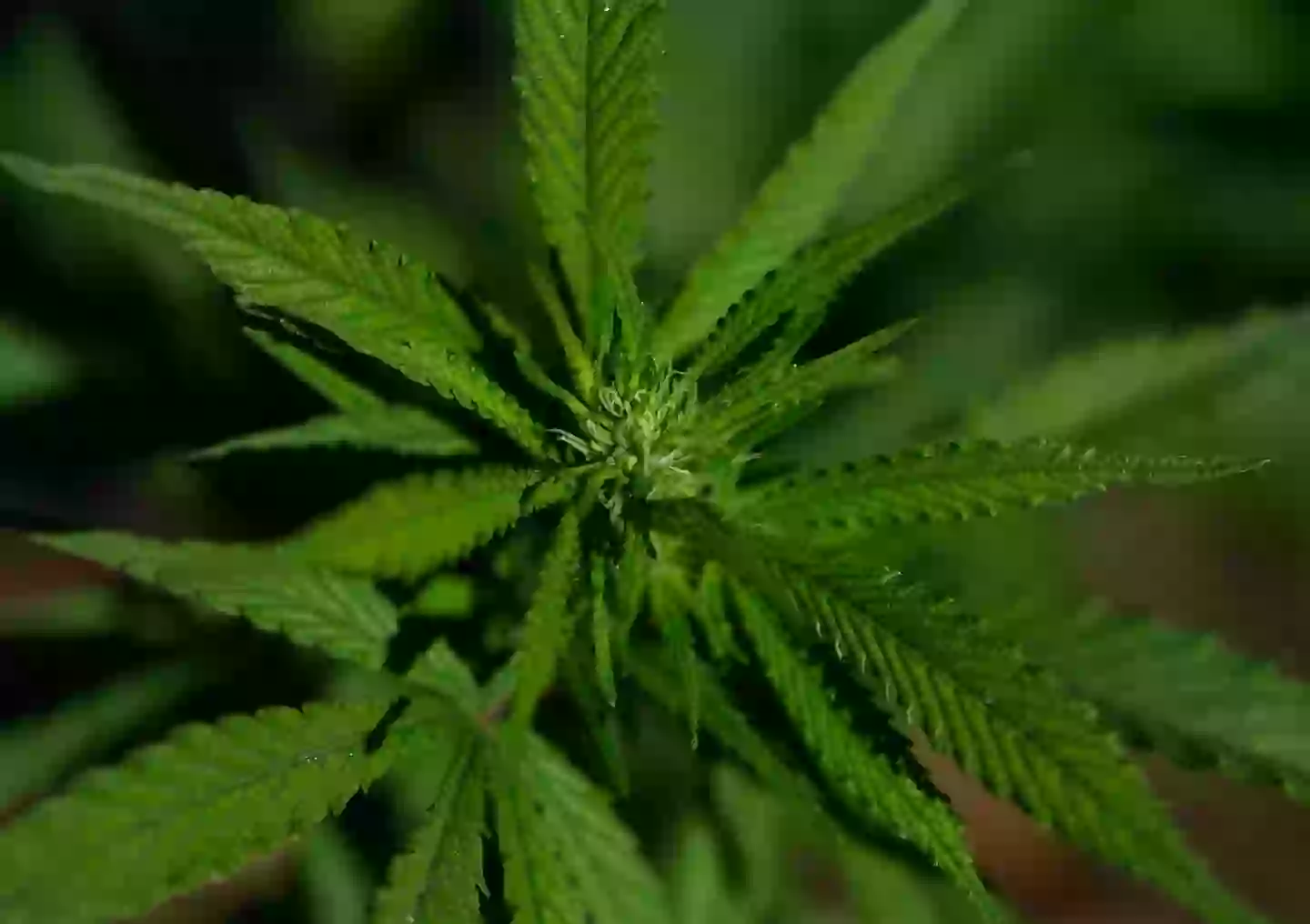
America’s cannabis laws can be a tricky subject to wrap your head around (Justin Sullivan/Getty Images)
What would happen if marijuana became a Schedule III drug?
If Trump were to go ahead and reclassify marijuana as a Schedule III drug, this would be a pretty big change up and down America.
According to the US government’s website, Schedule III drugs are defined as drugs ‘with a moderate to low potential for physical and psychological dependence’ and their ‘abuse potential is less than Schedule I and Schedule II drugs’.
Some examples of Schedule III drugs are products containing less than 90 milligrams of codeine per dosage unit, such as Tylenol with codeine, ketamine, anabolic steroids, and testosterone.
Meanwhile, Schedule I drugs are defined as drugs with no currently accepted medical use and a high potential for abuse.
Some examples include heroin, LSD, ecstasy, and as of right now, marijuana.
It’s important to note that the switch up would not make marijuana completely legal – it would just help ease restrictions and create more opportunities for medical uses and possible tax breaks for marijuana companies.
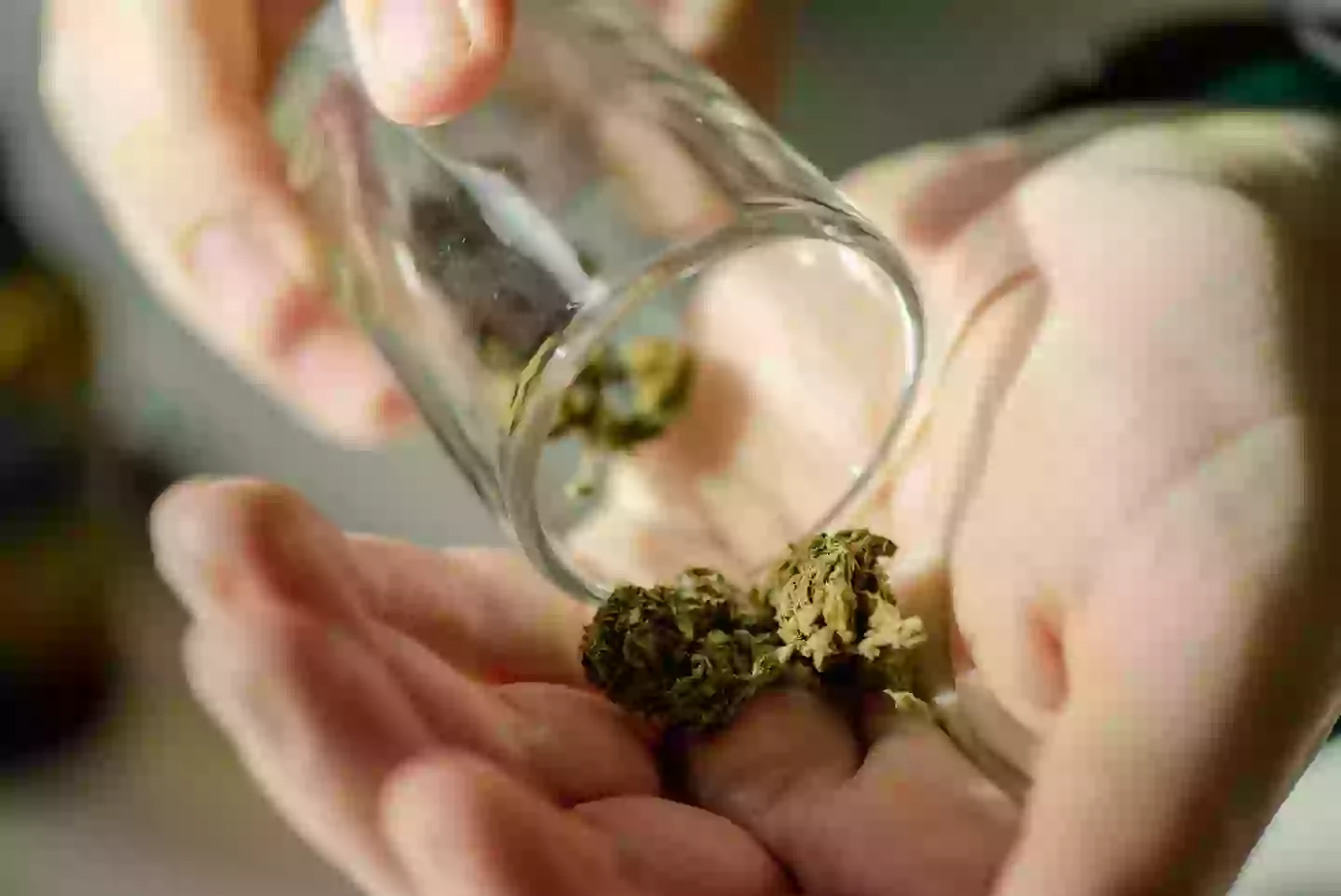
The Republican leader is said to be ‘looking at’ possibly switching marijuana from a Schedule I drug to a Schedule III drug (Emilija Manevska/Getty Images)
Which US states is marijuana currently legal in?
States where marijuana is fully legal:
- Alaska
- Arizona
- California
- Colorado
- Connecticut
- Delaware
- District of Columbia
- Illinois
- Maine
- Maryland
- Massachusetts
- Michigan
- Minnesota
- Missouri
- Montana
- Nevada
- New Jersey
- New Mexico
- New York
- Ohio
- Oregon
- Rhode Island
- Vermont
- Virginia
- Washington
States where marijuana is legal for medical purposes only:
- Alabama
- Arkansas
- Florida
- Georgia (CBD oil only)
- Hawaii
- Indiana (CBD oil only)
- Iowa (CBD oil only)
- Kentucky
- Louisiana
- Mississippi
- New Hampshire
- North Dakota
- Oklahoma
- Pennsylvania
- South Dakota
- Tennessee (CBD oil only)
- Texas
- Utah
- West Virginia
- Wisconsin (CBD oil only)
- Wyoming (CBD oil only)

Author: mscannabiz.com
MScannaBIZ for all you Mississippi Cannabis News and Information.
Mississippi Cannabis News
D.C. board rejects ANC 5A challenge to new medical cannabis retailer
Published
3 days agoon
September 12, 2025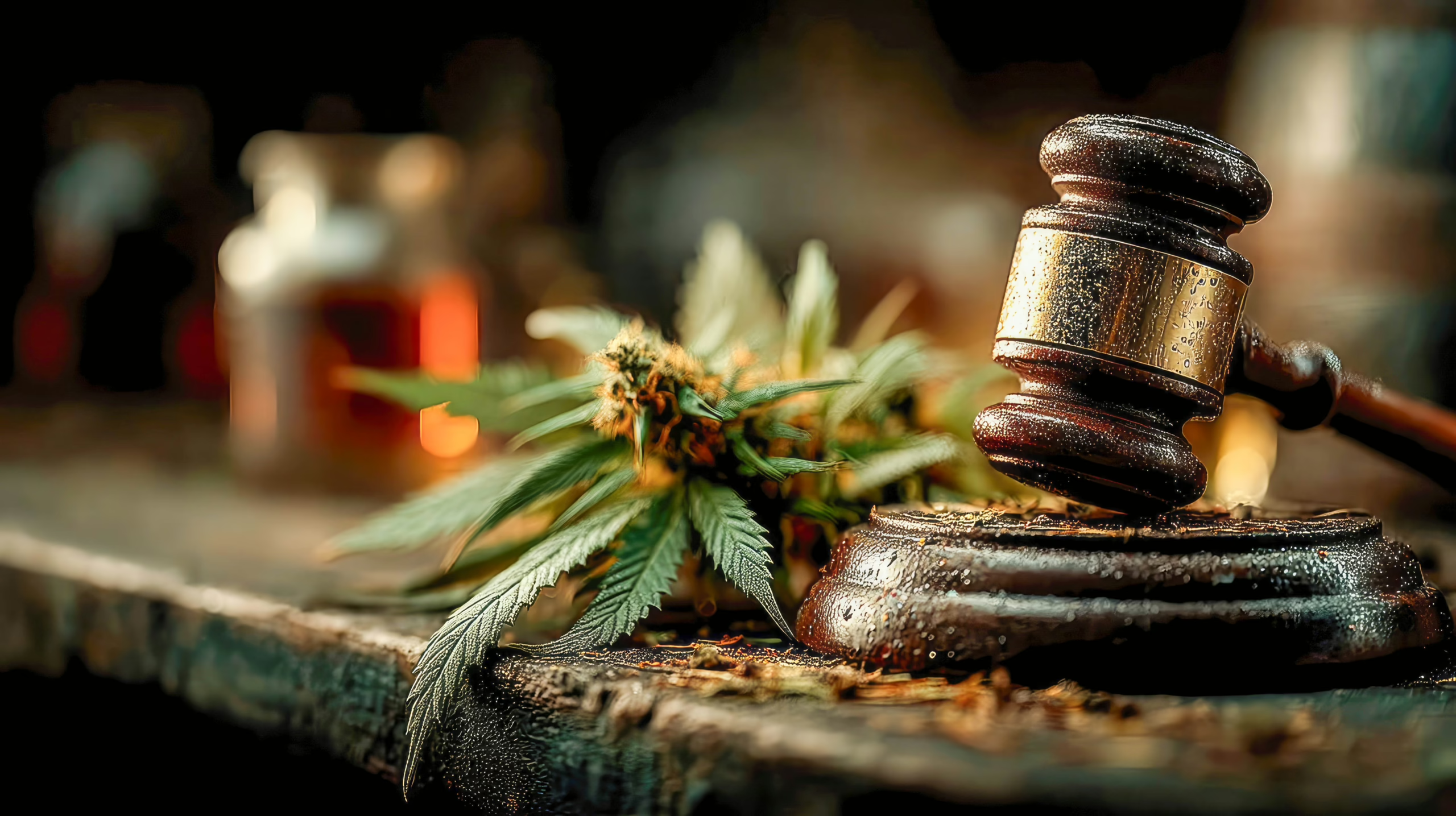
D.C. board rejects ANC 5A challenge to new medical cannabis retailer in Ward 5
The D.C. Alcoholic Beverage and Cannabis Board has rejected ANC 5A’s bid to reinstate its protest against a new Clinical Solutions medical cannabis dispensary in Ward 5, ruling that the ANC’s objections about daycare proximity and safety lacked the specific statutory grounds required to proceed; the license application remains on track, though the decision can still be appealed.
- Alt Sol was featured by wtop News.
- Catch up on today’s ABC Board meeting: watch, agenda.
- Sept. 24, Black Cannabis Week’s D.C. event, “From Prohibition to Policy.”
- A GOP-led House committee is advancing a bill to repeal Washington, D.C.’s Second Chance Amendment Act—which automatically expunges past cannabis possession records—framing the move as part of a broader “restoring law and order” initiative.
Workers protest at Maryland dispensary grand reopening over labor disputes
Cannabis workers and community members protested outside The Apothecarium’s grand reopening in Cumberland, Md., on Sept. 5, alleging the company engaged in union-busting and stalled contract negotiations since employees voted to unionize last year. UFCW Local 27 says workers are demanding fair pay and just cause protections, while the company has not yet issued a response.
Virginia’s 2025 gubernatorial race may decide future of legal cannabis market
Over half of Virginians have used cannabis, but the state currently lacks a legal retail market, though a bipartisan commission is studying its potential and the issue is expected to hinge on the 2025 gubernatorial election. Democratic candidate Abigail Spanberger supports establishing a regulated retail market to boost revenue and public safety, while Republican nominee Winsome Earle-Sears opposes legalization, citing cannabis as a gateway drug.
ICYMI: D.C. Dispensaries Boom, Trulieve Expands, Virginia Cannabis Hits a Turning Point
East Coast Roundup
Once a dominant force in Massachusetts‘ cannabis industry, Fitchburg-based Rev Clinics supplied products to approximately 75% of the state’s dispensaries. However, the company has faced significant challenges leading to its collapse.
A CBD shop in Connecticut shut down following allegations of illegal cannabis sales. The owner has agreed to a settlement.
New York’s licensed cannabis sales surpassed $2.09 billion, with over $1 billion generated in 2025 alone, indicating a robust and expanding market despite market turmoil.
The New York State Office of Cannabis Management announced the transition to the Metrc system for tracking cannabis from seed to sale will start in 2026.
Delaware’s recreational cannabis market achieved $7.3 million in sales during its inaugural month, signaling a strong consumer demand.
The Massachusetts Attorney General certified 44 ballot proposals for the 2026 election, including one aiming to repeal the state’s 2016 law legalizing recreational marijuana sales. This proposal, led by Sudbury resident Caroline Alcock Cunningham, seeks to shut down recreational dispensaries and impose civil penalties for public possession exceeding one ounce.
Culture & More
A new report highlights a significant rise in cannabis use among Americans aged 65 and older, with a 46% increase between 2021 and 2023.
USF Credit Union has introduced ‘Verde,’ a cannabis banking program aimed at providing financial services to the legal cannabis industry in Florida.
A new study found that THC can reach the human egg and may affect female fertility. Women who had THC in their follicular fluid showed a small increase in egg maturity but a lower rate of healthy embryos.
Around the Country
Mississippi’s medical cannabis program is expanding rapidly, with an average of 50 new patient cards issued daily. As of August 2025, the state has approximately 50,000 active cards, up from 40,000 in June 2024.
Texas retailers are relieved after the state legislature failed to pass a ban on THC products during the second special session. Despite this, Lt. Gov. Dan Patrick remains committed to a total ban, citing concerns over youth access.
California’s use of drones to monitor illegal cannabis cultivation led to unintended consequences, including the targeting of residents without cannabis operations. In Sonoma County, drone surveillance resulted in fines, evictions and legal battles for individuals who had no cannabis involvement.
From the swamp
Former Trump advisor Kellyanne Conway is reportedly a strong proponent of rescheduling cannabis, according to a GOP congressman. Her support adds a notable voice to the ongoing debate over federal cannabis policy reform.
OPINION: A Washington Post opinion piece argued that a loophole in the 2018 Farm Bill allows children access to psychoactive hemp-derived substances like delta-8 and delta-10 THC.
Employment Opportunity: DC Licensed Internet Retailer Dispensary Now Hiring. Contact info@getlocald.com to Learn More.

Author: mscannabiz.com
MScannaBIZ for all you Mississippi Cannabis News and Information.

How to Protect Your Outdoor Cannabis Crops From Pests

Feds provide anti-cannabis group a platform to bash legalization (Newsletter: September 15, 2025)

Dozen arrested after south Mississippi bust for illegal sales to underage customers

The Toking Traveler: Why Amsterdam Weed Is Mostly Boof

Arkansas Medical Marijuana Sales Are On Track To Set A New Annual Record

When Cannabis Brands Blur Into Youth Culture, Regulators Notice: Lessons From Tobacco’s Past

Rhode Island Marijuana Dispensary License Application Process Officially Launches

Middle school student found with cannabis in bookbag, Charles County deputies say

Smugglers who brought drugs on an industrial scale into Wales jailed

Attorney pulls out bag of cannabis in NC Supreme Court hearing

WHO AM I? Man wanted for New Bern cannabis store theft

Cannabis packages under scrutiny

California authorities shut down nearly $30 million worth of illegal cannabis operations

A Green Light for Cannabis? Europe Waits While the U.S. Untangles the Red Tape

Move Over, Booze: Weed Drinks Pulled $1.1 Billion in U.S. Sales in 2024

Congressional Committee Votes To Repeal Marijuana Expungements Law In Washington, D.C.

Times Square Welcomed Its Brightest Cannabis Billboard Yet

Smoking Marijuana With A Water Bong Doesn’t Effectively Filter Compounds From Smoke, Study Suggests

A Beginner’s Guide for Watering Cannabis Plants

Massachusetts Lawmakers Approve Bill To Create Psychedelic Therapy Pilot Program

From the Dark Web to the Streets: Meet the Canadian Distributing Pure Cocaine to Save Lives

Congressional Committee Schedules Hearing On Chinese ‘Invasion’ Through ‘Illegal Marijuana’ Operations

Carmelo Anthony Marks Hall of Fame With Hall of Flame Cannabis Drop

California: Lawmakers Advance Legislation to Governor’s Desk Halting Tax Hike on Commercially Available Cannabis Products

Alert: Department of Cannabis Control updates data dashboards with full data for 2023

Connecticut Appoints The US’s First Cannabis Ombudsperson – Yes there is a pun in there and I’m Sure Erin Kirk Is Going To Hear It More Than Once!

5 best CBD creams of 2024 by Leafly

EU initiative begins bid to open access to psychedelic therapies
New Study Analyzes the Effects of THCV, CBD on Weight Loss

Free delta-9 gummies from Bay Smokes

Discover New York’s dankest cannabis brands [September 2024]

5 best autoflower seed banks of 2024 by Leafly

Press Release: CANNRA Calls for Farm Bill to Clarify Existing State Authority to Regulate Hemp Products

Curaleaf Start Process Of Getting Their Claws Into The UK’s National Health System – With Former MP (Resigned Today 30/5/24) As The Front Man

May 2024 Leafly HighLight: Pink Runtz strain

Local medical cannabis dispensary reacts to MSDH pulling Rapid Analytics License – WLBT

Recreational cannabis on ballot for third time in South Dakota

5 best THC drinks of 2024 by Leafly

Horn Lake denies cannabis dispensary request to allow sale of drug paraphernalia and Sunday sales | News

Mississippi city official pleads guilty to selling fake CBD products

6 best CBD gummies of 2024 by Leafly

Nevada CCB to Accept Applications for Cannabis Establishments in White Pine County – “Only one cultivation and one production license will be awarded in White Pine County”

The Daily Hit: October 2, 2024

5 best delta-9 THC gummies of 2024 by Leafly

Weekly Update: Monday, May 13, 2024 including, New Guide for Renewals & May Board meeting application deadline

PRESS RELEASE : Justice Department Submits Proposed Regulation to Reschedule Marijuana

5 best THCA flower of 2024 by Leafly

People In This State Googled ‘Medical Marijuana’ The Most, Study Shows
Trending
-

 California Cannabis Updates1 year ago
California Cannabis Updates1 year agoAlert: Department of Cannabis Control updates data dashboards with full data for 2023
-

 Breaking News1 year ago
Breaking News1 year agoConnecticut Appoints The US’s First Cannabis Ombudsperson – Yes there is a pun in there and I’m Sure Erin Kirk Is Going To Hear It More Than Once!
-

 best list1 year ago
best list1 year ago5 best CBD creams of 2024 by Leafly
-

 Business12 months ago
Business12 months agoEU initiative begins bid to open access to psychedelic therapies
-

 cbd1 year ago
cbd1 year agoNew Study Analyzes the Effects of THCV, CBD on Weight Loss
-

 Bay Smokes1 year ago
Bay Smokes1 year agoFree delta-9 gummies from Bay Smokes
-

 cannabis brands12 months ago
cannabis brands12 months agoDiscover New York’s dankest cannabis brands [September 2024]
-

 autoflower seeds12 months ago
autoflower seeds12 months ago5 best autoflower seed banks of 2024 by Leafly

